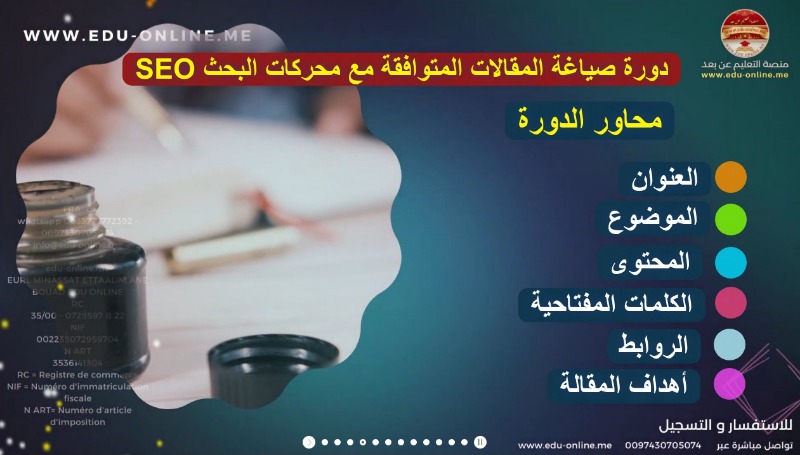- تلقي الشكر 0













Share your experience


alrayyancastle.com
شارك خبراتك
 Garden Pest Management: A Comprehensive Guide to Protecting Your Plants
Garden Pest Management: A Comprehensive Guide to Protecting Your Plants
- daliaahmed
-
كاتب الموضوع
- غير متصل
- عضو ذهبي
-

أقل
مزيد
قبل 1 سنة 11 شهور #3359
بواسطة daliaahmed
Garden pest management is an essential aspect of maintaining a thriving and bountiful garden. Every gardener knows that pests can pose a significant threat to plants, potentially causing damage or even complete loss of crops. However, with a well-structured pest management plan, gardeners can effectively protect their plants and ensure a successful harvest. This article provides a comprehensive guide to garden pest management.1. Identify Common Garden PestsThe first step in garden pest management is to identify the common pests that may target your plants. Common garden pests include:
pest control maintenance company dubai
- Insects: Aphids, caterpillars, beetles, and mealybugs.
- Mollusks: Slugs and snails.
- Rodents: Rats and mice.
- Wildlife: Deer, rabbits, and birds.
- Regular Monitoring: Inspect your garden regularly for signs of pest activity, such as chewed leaves, droppings, or damaged fruit.
- Cultural Practices: Implement practices like crop rotation, companion planting, and selecting pest-resistant plant varieties.
- Biological Control: Introduce beneficial insects or nematodes that prey on garden pests.
- Mechanical Control: Use physical barriers like row covers or traps to deter or capture pests.
- Selective Chemical Control: If chemical treatments are necessary, choose low-toxicity options and apply them sparingly and selectively.
- Marigolds: Plant marigolds near vegetables to deter aphids and nematodes.
- Basil: Basil can repel flies and mosquitoes and is often planted near tomatoes to improve their flavor.
- Nasturtiums: These flowers can deter aphids and whiteflies and are beneficial when planted near squash and cucumbers.
- Hand Picking: Remove pests like caterpillars and slugs by hand and dispose of them properly.
- Beneficial Insects: Attract or release beneficial insects like ladybugs and lacewings that prey on garden pests.
bed bug treatment - Neem Oil: Neem oil is an organic insecticide that can control a variety of garden pests.
pest control maintenance company dubai
- Organic Pesticides: Choose organic pesticides derived from natural sources, such as pyrethrum or diatomaceous earth.
- Follow Instructions: Read and follow the label instructions of any pesticide carefully, and apply them when pests are most vulnerable.
الرجاء قم بــتسجيل الدخول أو إنشاء حساب.. للإنضمام للمحادثة.
المشرفين: اﻷعمال و المشاريع المنزلية
الوقت لإنشاء الصفحة: 0.212 ثانية
Syndication Feeds
Who's Online
991 زائر، ولايوجد أعضاء داخل الموقع
Latest Users
- perfectderma
- Aladdin22
- Tyler T861
- omniaadel11377
- s3oa77
- zaqwsxcderfv
- amar
- CCosplay
- locaksa
- nacniv
- tjrbtyonline
- محمد شريف
- نرمين
- يوسف إبراهيم
- nyggWBzFVSNDagKJCHguJhR
- youstina
- engy
- sama58
- youdtina
- mennasabryjbj@gmail.com
- uostina
- whirlpooll1
- المصرىىىىى
- plumberrr
- BluePhoenix
- محمود السيد
- تبصير
- mudasir5454
- aomr
- ayamahmoud3
- adham
- Awatlt
- nzSmtKpSDUeBDwRAggrxrh
- اجاكس ديتكتور2025
- alfagr
- Fluffyy
- alnosqsa
- eslamonn
- دعايا
- arbnew
- qjpIlVkFhMbRBTDWLHPNwL
- ESLAMUWK
- DXCpIWnvsn
- joeyochs76
- كينج دمنهور
- visa
- حنان وافي
- دنيا
- GiEDpmXIzvHXYIf
- makeolise3
 29.236%
Unknown
29.236%
Unknown
 17.327%
China
17.327%
China
 16.485%
Egypt
16.485%
Egypt
 15.101%
United States of America
15.101%
United States of America
 5.303%
Saudi Arabia
5.303%
Saudi Arabia
 3.792%
Qatar
3.792%
Qatar
 1.345%
United Arab Emirates
1.345%
United Arab Emirates
Total:
121
Countries
000043747











